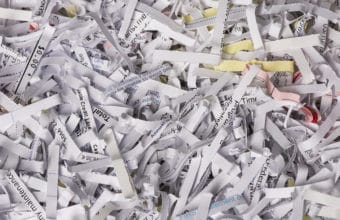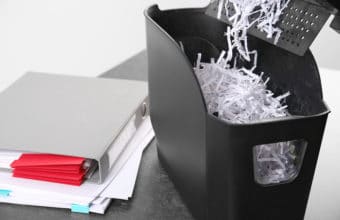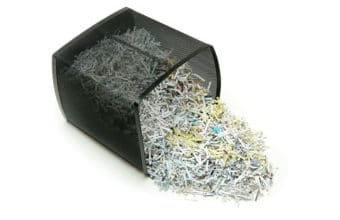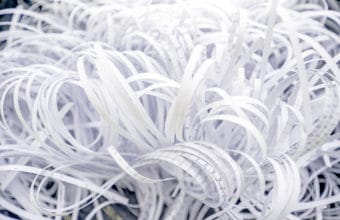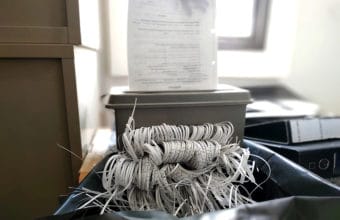Document Shredding
-
4 Ways a Shredding Service Saves You Money
No matter how you do it, paper shredding is going to cost your business money. That’s a fact. Whether your North Dakota business purchases their own shredder and pays in employee hours to get the job done or you hire a professional data destruction service like SEAM, taking care of outdated paper documents is an […]
read more -
5 Kinds of Businesses that Can Benefit from Secure Shredding Services
Data security is an especially important element of a modern business. Customers trust the businesses that they deal with to have a plan in place to keep their private information out of the wrong hands. Secure shredding is a highly effective means to get rid of paper documents on behalf of businesses. Today, let’s take a look […]
read more -
5 Kinds of Legal Documents You Need to Shred Securely
Lawyers often know how important it is to be careful about the documents in their workplace. If a law office puts certain documents in the trash, vital information could be discovered and used in inappropriate ways. But with boxes of legal documents piling up, it can be hard to know what to do to make […]
read more -
5 Reasons Why You Need Document Shredding
Even as businesses try to transition to a paperless workplace, the fact is that most offices produce a surprisingly large amount of paper documents. Most of the time, these documents will contain confidential information, and the responsibility of maintaining that confidentiality rests within the company. That’s why it’s important to secure the services of a […]
read more -
What Happens to Your Documents After Shredding?
In your office, you do everything you can to keep sensitive papers secure, from locking your filing cabinets to securing shredding bins. But what happens once those shredding bins are collected and the documents are sent off to be destroyed? And what happens to that shredded paper? When you’re looking for a vendor to shred […]
read more -
Shred All: Is it Better than Selective Shredding
Document shredding is an essential part of ongoing business operations. Not only is it wise to create a clutter-free environment for employees, but following a regular shredding schedule frees up space that might otherwise be used for storage, or alternately, saves you money on off-site records storage. Most importantly, keeping up with document shredding helps […]
read more -
Five Healthcare Documents to Destroy for Information Security
Document loss or theft in the healthcare industry can be particularly damaging, because documents can contain a wide range of incredibly sensitive information. Sensitive healthcare documentation includes things such as records of patients’ medical histories, the personal information of patients or staff, and information relating to insurance claims and payments. While many South Dakota healthcare […]
read more -
The Evolution of Paper Shredding
In this day and age, most businesses take paper shredders for granted. This handy technology has been in use for as long as most people can remember, and while shredding equipment has improved dramatically over the years, it still performs the same basic function it was originally conceived for – destroying data in hard copy […]
read more -
Purge Shredding: What is It and When You Should Do It
Businesses large and small generate a range of documents. Even companies that have largely gone paperless may still have to keep hard copies of certain types of records, such as tax filings (including original documents), contracts, invoices and payments, employee records, and certain types of customer data. Often, these records must be maintained for a […]
read more


